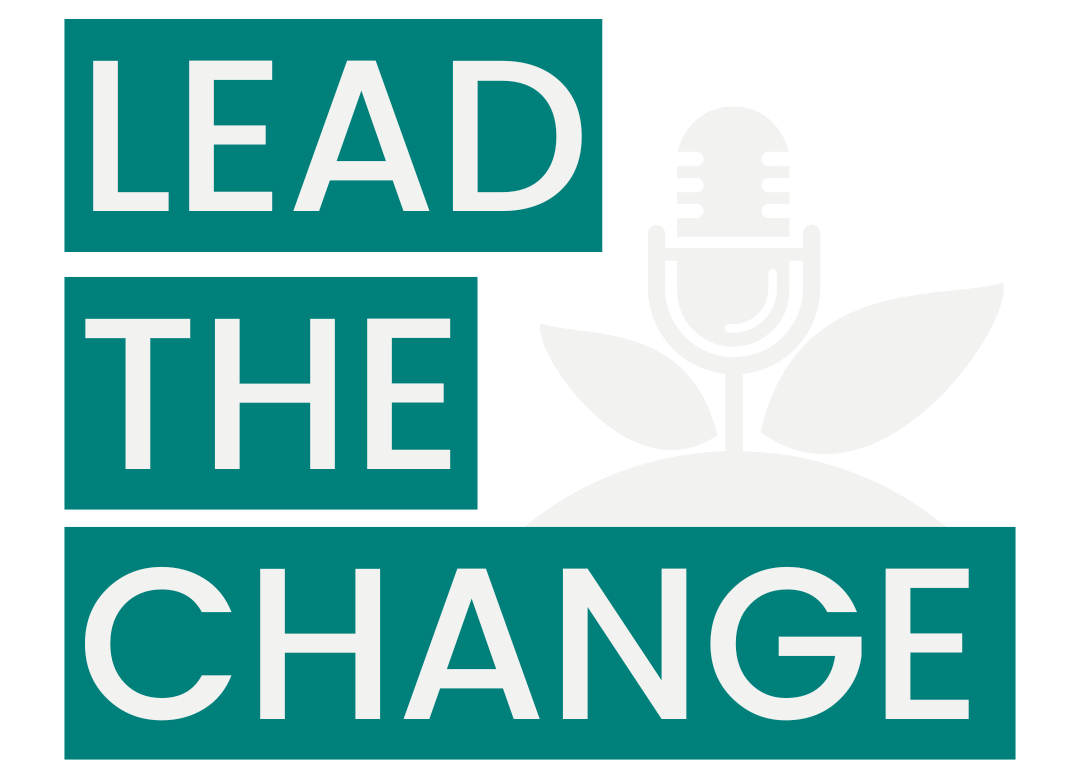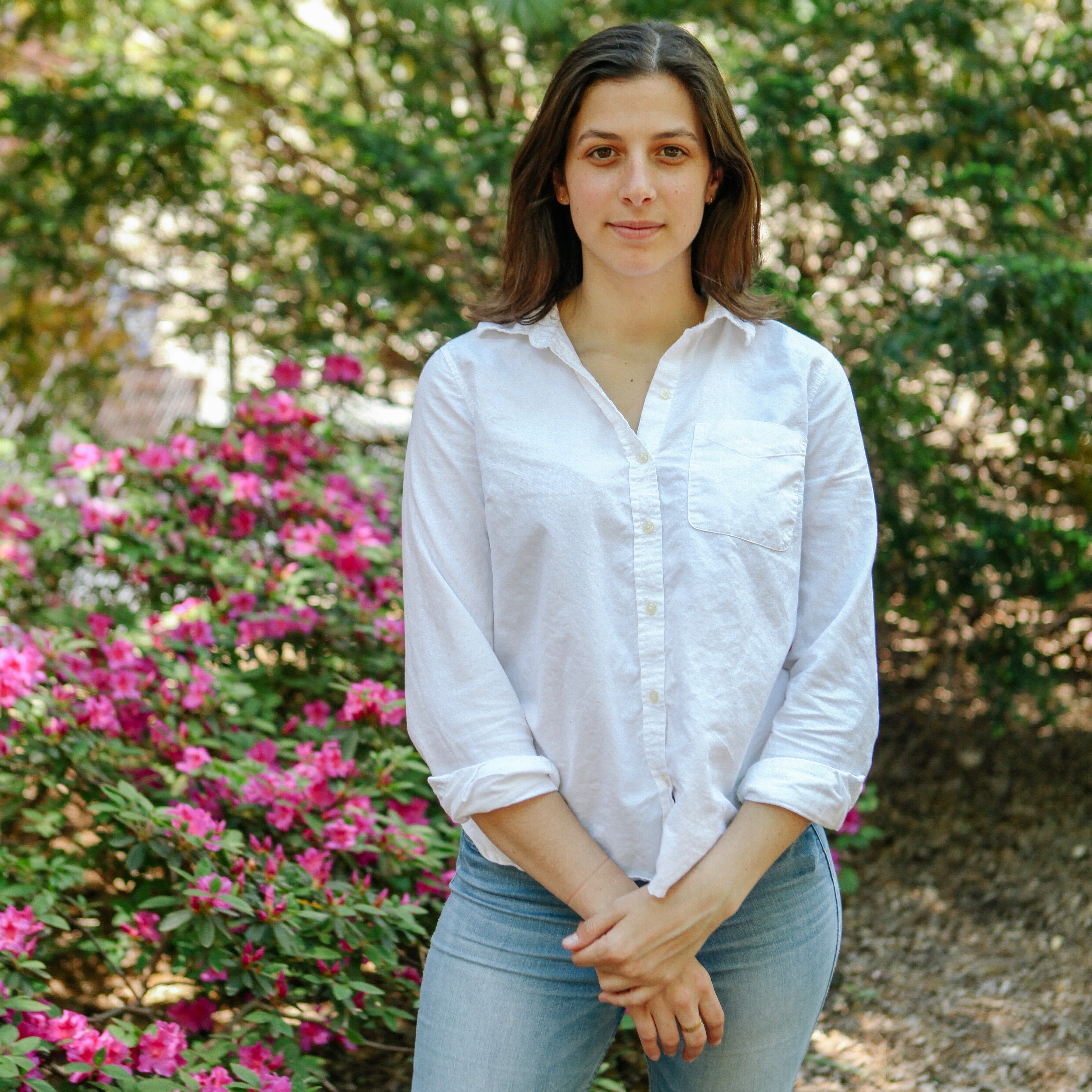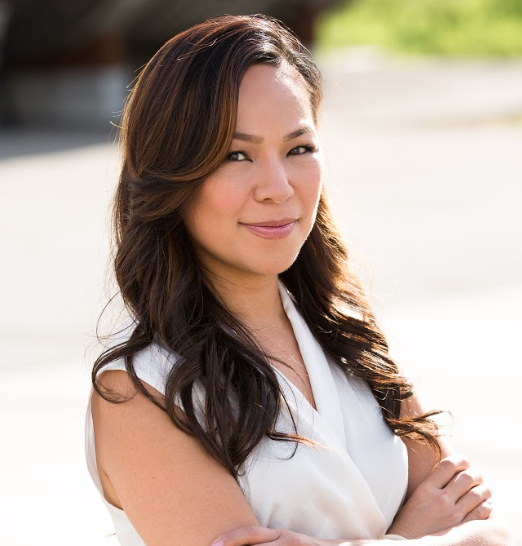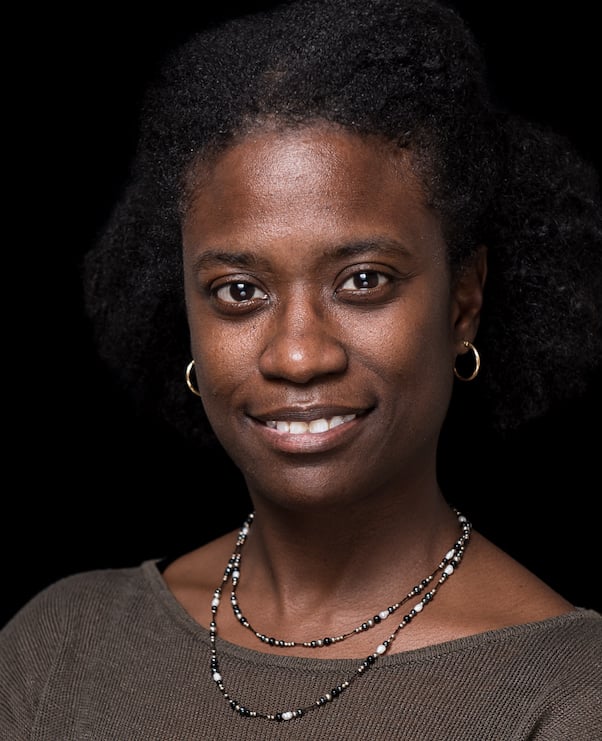
612: The Importance of Acknowledging Disabilities in the Workplace
Featuring Hannah Rose Olson
Co-Founder & CEO, Disclo Top 100 Powerful Women of 2020 (Entrepreneur Magazine) Top 100 LGBTQIA+ Venture-Backed Entrepreneurs of 2021 (Gaingels)
Hannah Olson is the Co-Founder and CEO of Disclo, an innovative HR software helping employees to safely disclose and ask for accommodations at work. Hannah’s own experience navigating her career while undergoing intensive treatment for Lyme disease sparked the idea for her first venture, Chronically Capable, now one of the largest and most-used disability recruiting platforms in North America. She is known globally for her disability advocacy, with recent features in Forbes, Inc Magazine, FastCompany, and more.
Bard MBA’s Jasmine Graham speaks with Hannah for this episode of the Impact Report. See an excerpt of their conversation below.
Jasmine Graham: Hannah was named one of the top 100 powerful women of 2020 by Entrepreneur Magazine, and one of the top 100 LGBTQIA+ venture-backed entrepreneurs of 2021 by Gayngels. We are thrilled to have her with us today on the Impact Report. Welcome, Hannah!
Hannah Olson: Thanks so much for having me.
Jasmine Graham: It's great to have you here. I personally am really excited to talk to you as a new executive director of a not-for-profit called Mid Hudson Energy Transition, and our mission is to empower municipalities, their residents, and businesses to own and share renewable energy, create healthier buildings, and join in community wealth building to strengthen the resilience of the Hudson Valley in the face of climate change. So I also think a lot about, what does it mean to empower the employees of MHat and to create an inclusive and supportive environment for everyone to thrive in a way that works best for them. And I am so grateful for the work that you're leading to make work safe and accessible to everyone.
Hannah Olson: Thank you so much, and kudos to you on the new position.
Jasmine Graham: Thank you. Thank you so much. So your first venture is a company called Chronically Capable, one of the largest and most used disability recruiting platforms in North America. Can you tell us what led you to found the company?
Hannah Olson: Absolutely, so. I kind of fell into this work. So I, when I graduated college, I was in the midst of treatment for a chronic health condition, and shortly after my college graduation I actually had a pick line placed in my arm, which, if you're not familiar it's essentially a permanent IV. And so I was hooked up to IV antibiotics for about 8 hours a day. And when I first entered the workforce I struggled deeply with navigating these conversations with my employer. I truthfully didn't see myself as someone with disability, and I definitely didn't check the box on my job application, saying that I was someone and unfortunately, long story short, I ended up in a company that wasn't inclusive and couldn't accommodate me and I just saw firsthand how challenging it was to be someone with a chronic health condition or disability here in the workforce, and I knew there had to be a better way for us to accommodate and support people and their diverse needs. And so ended up at a startup at a really really awesome boss who treated me with dignity and grace and like a human and truthfully I wanted everyone like me to have a boss like him. And so the two of us stemmed off and started our first business Chronically Capable back in 2019 with the mission really, of connecting folks with various chronic health conditions and disabilities to companies who care and companies who are able to accommodate and support these individuals.
Jasmine Graham: That work is so important. So, how has it grown over time? And why do you think it's been so successful?
Hannah Olson: Yeah, so I think you know, ironically enough, we had been out since 2019, but officially launched the platform quite literally a few weeks before the pandemic hit the United States, and we all went remote. And suddenly the way we work changed drastically, and we started to think about accommodations very differently than we had in the past. I think, before accommodations, felt like a very difficult or challenging thing for employers to implement. And suddenly we had to accommodate all of our employees essentially overnight, and I think it really started to shift the way we work and the way that we're able to support our people. And so throughout the pandemic we grew the business quite significantly, and started to gain traction in the disability community as well as building these true enterprise partnerships but through building that business we actually kind of stumbled upon a deeper issue, which I'm sure we'll get to, and that's what led us to get into our second business in this space. But yeah, I think the pandemic really just shifted everything and I don't think we can ever go back to the way it was before, and so that really kind of pushed the work that we're doing.
Jasmine Graham: I couldn't agree more, and I actually was one of the few people who was working remote, maybe not few people, but was working remote, prior to the pandemic. So I've been remote since 2018, and you know that flexibility has really given me the ability to take on so much more to be a more active member of my community, and to really grow professionally, and not so. I'm a really big proponent of remote work across the board, and you know you touched on this, but it's allowed, you know, a lot of people that were typically left out of the workforce due to, you know, either medical conditions or caregiving responsibilities, or any kind of physical difference, to participate in the job force without the same level of stigma. And so I would love to hear your thoughts on, you know, what are your thoughts about the trends to call workers back to in-person work?
Hannah Olson: Yeah. It's a great question. It's a loaded question. Because I think what's really interesting is that they just released the stats from 2022, and disability employment reached a record high. And we're seeing more people than ever being able to be employed and to be able to access work and like you, said a large part of that is remote work. And is that flexibility where people who weren't able to even just get to work are now able to access the computer and do things right from their couch, if need be. And so I think you know, as we shift back to work or back to normal quote unquote. And I want to emphasize quote-unquote. I think there's a lot of adjustments that need to be made. And I do think we need to think about all of that we accomplished during the pandemic. We saw that work didn't stop. The world didn't stop businesses, many of which were booming. A lot of technology companies boom during the pandemic and so I think we need to still provide access to those who do need remote work. And I think it also goes to show that people need to stand up for themselves and need to ask for that support. We need to advocate for continued access to remote work, because it does enable us to have a stronger workforce when we can tap into talent that we weren't able to prior to the pandemic. And so I think we made a lot of progress, and my hopes are that companies can see that and be proud of it and can continue that beyond the pandemic. And as we return to work, I just hope we don't digress.
Jasmine Graham: That's a real concern. And so you know, if you had it your way, what trends would you see employers start to make to, you know, in response to the success of remote work in the pandemic?
Hannah Olson: Yeah. So I haven't touched upon this just yet, but I may have alluded to it, but we actually started a second business this past summer called Disclo, and we help people to disclose, and ask for accommodations at work. And through running this business, we're seeing a lot about the needs of companies, employees, and what employees are asking for. And many of these people are asking for continued, remote work or being able to even work remotely one or two days a week. And so I think companies need to be really aware of the needs of their people and be able to adapt to those needs as I mentioned, we're not going back to the way it was before, and if we don't really understand our people and what they need then, we can't make decisions on behalf of them, and so I think, offering the opportunity for people to speak up and disclose and ask for accommodations is really crucial. We're starting to see legislation roll out supporting pregnant employees and nursing employees and they're entitled to many of the same support mechanisms and accommodations that those with disabilities are and so my hopes are that companies are more forward and asking their people of what they need, and really listening to those needs because we can't continue to make decisions without understanding what are people are actually asking for.
Jasmine Graham: Absolutely. It sounds like Disclo has really been an outgrowth of your prior work with Chronically Capable. Can you tell us a little bit about that transition, and how you got started with this?
Hannah Olson: Yeah, so. And you know, as I mentioned initially, we saw the issue as being, how do we get more folks with disabilities into the workplace? We've now seen, as I mentioned in 2022, disability employment reached a record high, where more and more folks are getting access to that work, but pretty quickly into launching to Chronically Capable,we started to hear from our employer partners as well as job seekers, about the same challenge, and that was regarding, disclosing and asking for accommodations at work. And right now the process is very uncomfortable and very clunky for people to ask for any type of accommodation. So if you were to say, I need to work remotely, for example, if I need a certain piece of equipment, you're forced to divulge very personal information to your employer, and it's a very awkward conversation, and employers really have no way to manage this whole process because it's illegal to store it in their own systems, and so what we've found, and what we've seen is that there was a real need for a safer way for people to go through this process, and a better way for companies to manage the end-to-end process of administering accommodations and so we kind of fell into this business as well through just our own experience. But we're now building a system very similar to Turbotax, but for accommodations where it allows for people to kind of be guided through a step by step process, and asking for accommodations, and so we can learn a lot more about your people a lot more about their needs and build that trust with your employees, which is very hard to do when you're asking them very uncomfortable things.
Jasmine Graham: Absolutely. And I love that this came about so organically that, it came out of the needs that you all saw, you know, directly through your work, and I think, as companies have invested more time in their justice, equity, diversity, and inclusion initiatives to varying degrees, of success, disability is sometimes left out of this conversation, and employees, as you mentioned, are often very reluctant to disclose whether or not they have a disability. So you know how is Disclo moving the needle on this? And have you seen, you know, the impact of your work in providing this safer way to disclose?
Hannah Olson: Yeah, you're completely right. Most companies can't even tell you what percentage of their employees have a disability. But with other diverse groups we're able to point to those numbers.And I think disabilities has often been left out of the equation, or it hasn't been tracked properly, and it's largely due to the fact that it's not safe for people to disclose. And so, you know, prior to building this flow, we knew that only about 3% of people came forward and disclosed at work. And every time we have a company on board we ask them prior to starting with this flow, what is your number? What is your percentage? And we've been able to have most of our employee employer partners hovering at about 20% of their employees signing up for Disclo, which shows us that there's a real need for just a safer way. And really a third party to kind of step in and build that trust. People don't want their health information being tossed around, and they don't want their employers knowing specifics of what they're living with. And so we're already starting to see that impact. And in real time a company that's using Disclo can view how many of our employees live with a disability you can break down by department and see, Hey, you know, in our marketing department we've got 4% of our employees here disclosing, or perhaps most requests in the finance department aren't getting approved, and we can get a real view of our people and their needs. And also the gaps that our company has in terms of being able and willing to accommodate our people. So we're making progress I mean, we're 9 months, you know, out here. But I think it just goes to show that there is a better way, and there should be a continued need for trust and safety, and employees require that in order to come forward.
Jasmine Graham: I mean, that's an incredible statistic right there, you know, 20% disclosing compared to 3% shows, as you said, that the need is very much there, and so I'm curious as a founder seeking funding, what was it like to fundraise for Chronically Capable and Disclo? And what did you learn about the process?
Hannah Olson: Fundraising is tough. I think we're in a bit of a different environment today than we were even 6 months ago. And I've been fortunate enough to have learned a lot over the last few years and learned how to navigate the process. But at first, you know, I walked into fundraising rooms, virtual Zoom Rooms. I mean by that, and I was always the youngest in the room. I was also a woman, and I was also someone who was pretty vocal about being sick and having a disability. And so it was like this triple whammy, and not to mention that I'm also gay. So it's like a quadruple whammy. But I struggle deeply with just getting my point across and being treated equally, and being looked at as being capable. But I always dug back and thought, Who are the investors that really cared and got our mission from day one. And those are the people who are on our cap table today that are living, breathing supporters of Disclo and Chronically Capable. But I've learned to advocate for myself a lot. I know how to navigate these conversations much, much better than I did in 2019 and 2020, and I've been able to find my voice and learned just kind of how the world goes, but it's not easy, and I think diverse founders do have a disadvantage, and we'll continue to until we start to see them succeeding and start to share those stories and start to celebrate the wins of those who have been able to grow a business successfully, cause we exist.
Jasmine Graham: Yes, and we love to have the opportunity to celebrate you as a young, queer, black woman. Also quadruple whammy. I absolutely hear you on the difficulties and the challenges, and I wonder you know what additional advice you may have for, you know the young founders, the disabled founders, the queer Founders, you know the women founders, and everything in between who have structural barriers in place. How do we advocate for ourselves in these spaces to make sure that our organizations can do the good work that we need to do?
Hannah Olson: There is so much work to be done beyond, you know, that we can even talk about today, but I think largely self-advocacy at its core is the ability to believe in yourself and stand up for yourself and stand up for what's right and I think when I was able to get a voice, and to not take no for a no, I was able to get my point across and get people to take me seriously. I think people are quick to think that if you're out there fundraising and you're out there building a business that you're beholden to investors, and you're beholden to higher-ups. But in reality they want you just as bad as you want them, or they need you just as bad as you need them. And when you can start to shift the narrative and think, Hey, you know the train’s moving, and you can either hop on my train or you can hop off. That's the kind of self-advocacy that I think diverse founders often lack. But should do. I think you know you have to be able to think.
You know I can, and I will do this, with or without your help, and I think that's something that people often struggle with when you have rejection, and you're told no, but the ability to turn that into a yes, is the ability to say I don't need you and I can do this without you. So I think also, I'll add here as well, I think also building a network. Never stop networking. There are so many people out there to support you and to help you. I wouldn't be here today without support of my fellow founder friends, without mentors and resources, online communities. So seek them out, you know. Reach out to me if you're out there listening to this, and want someone to talk to you. We cannot do this alone. It's really we're all on this together. That was like a really cheesy High School Musical line.
Jasmine Graham: I absolutely love that I mean, you can hear, even in the advice that you would give to others. Network and support and community and solidarity. Right? These things that very clearly show up in your work at Disclo and at Chronically Capable. Is there anything else that you would like to share? There is so much that I would like to learn from you, and I wanna make sure that you have the opportunity to add any other thoughts you might have.
Hannah Olson: I would just say, you know, be open to change and be strong in what you want. I think it's just so easy to, as I mentioned, when you hear the word no, it's easy to have this fear of rejection, or feel like you're not going to be able to accomplish anything. I was told no 124 times the first time I went out and fundraised. That was really defeating. I spent many nights with my face in a pillow. I was really sad. I thought I wasn't going to be able to do this. Be open to change, be flexible, but also just dig deep for what you believe in. I think at the end of the day good prevails, and good people, and good ideas, and just continue to be a good person, because there are good investors out there, and I'm really lucky today to have people around my table that I trust and to believe in what we're doing, and it took a long way to get there, and I wouldn't have it any other way. So be open to the fact that things may take time and be flexible.
Jasmine Graham: I actually wanna go back for a second to ask if or what would you say to employers who are maybe wanting to do better in this space? But don't know where to start.
Hannah Olson: I would say, educate yourself. I think we rely on others to constantly be educating us, and we're, you know, I've had so many companies that say, how do we do this? And what do we have to do? And how do we find support? And how do we find people with disabilities? How do we accommodate them? A lot of it comes down to education, understanding the experiences of those with disabilities. There are so many content creators out there, actors, artists, musicians, advocates, entrepreneurs who have had hardships. And listen to them. Watch them, absorb them, and I think you have to put in the work, and that takes a level of self-understanding and a level of drive to actually do that yourself.




